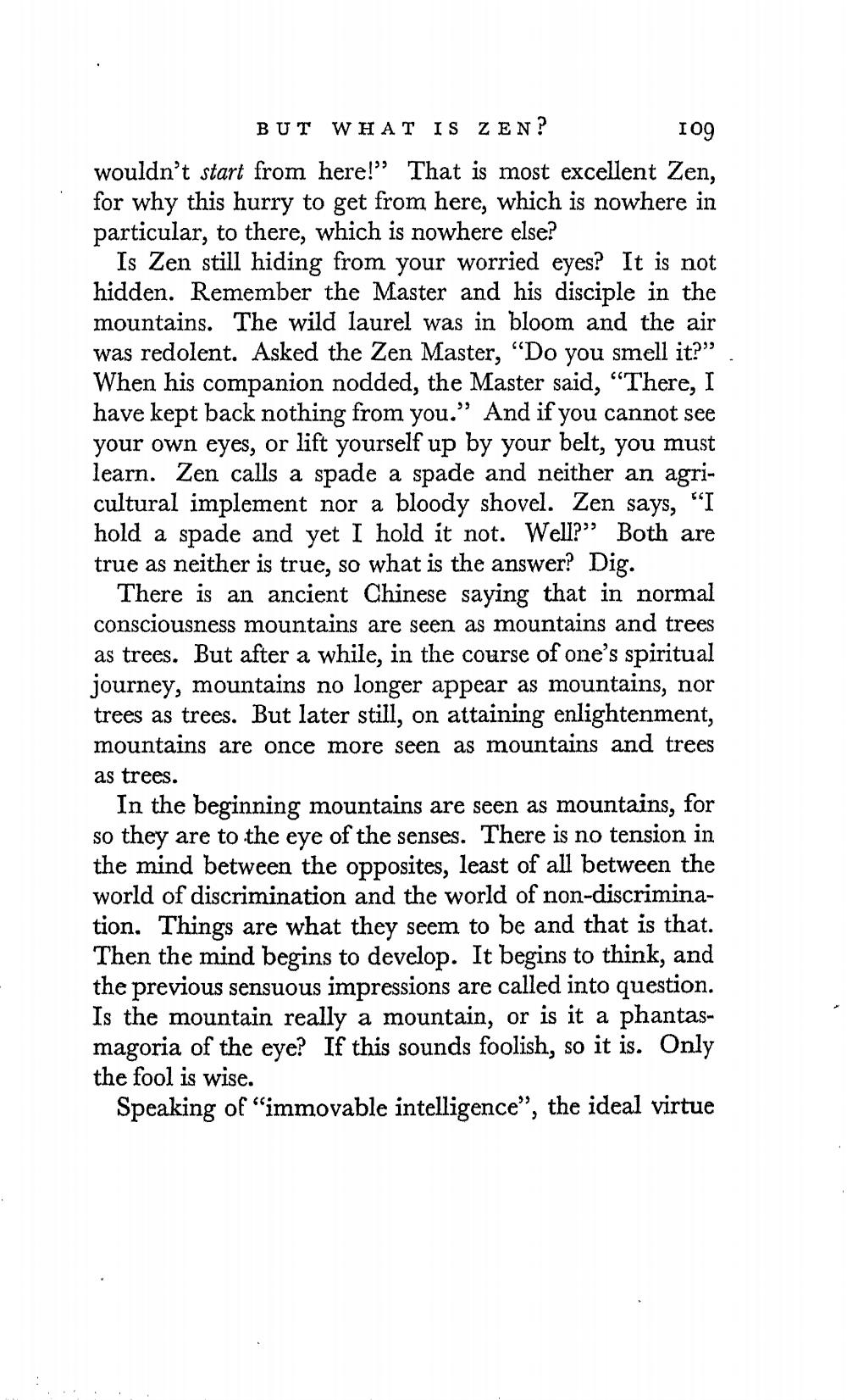________________
109
BUT WHAT IS ZEN? wouldn't start from here!" That is most excellent Zen, for why this hurry to get from here, which is nowhere in particular, to there, which is nowhere else?
Is Zen still hiding from your worried eyes? It is not hidden. Remember the Master and his disciple in the mountains. The wild laurel was in bloom and the air was redolent. Asked the Zen Master, "Do you smell it?” When his companion nodded, the Master said, “There, I have kept back nothing from you." And if you cannot see your own eyes, or lift yourself up by your belt, you must learn. Zen calls a spade a spade and neither an agricultural implement nor a bloody shovel. Zen says, "I hold a spade and yet I hold it not. Well?” Both are true as neither is true, so what is the answer? Dig.
There is an ancient Chinese saying that in normal consciousness mountains are seen as mountains and trees as trees. But after a while, in the course of one's spiritual journey, mountains no longer appear as mountains, nor trees as trees. But later still, on attaining enlightenment, mountains are once more seen as mountains and trees as trees.
In the beginning mountains are seen as mountains, for so they are to the eye of the senses. There is no tension in the mind between the opposites, least of all between the world of discrimination and the world of non-discrimination. Things are what they seem to be and that is that. Then the mind begins to develop. It begins to think, and the previous sensuous impressions are called into question. Is the mountain really a mountain, or is it a phantasmagoria of the eye? If this sounds foolish, so it is. Only the fool is wise.
Speaking of “immovable intelligence", the ideal virtue




